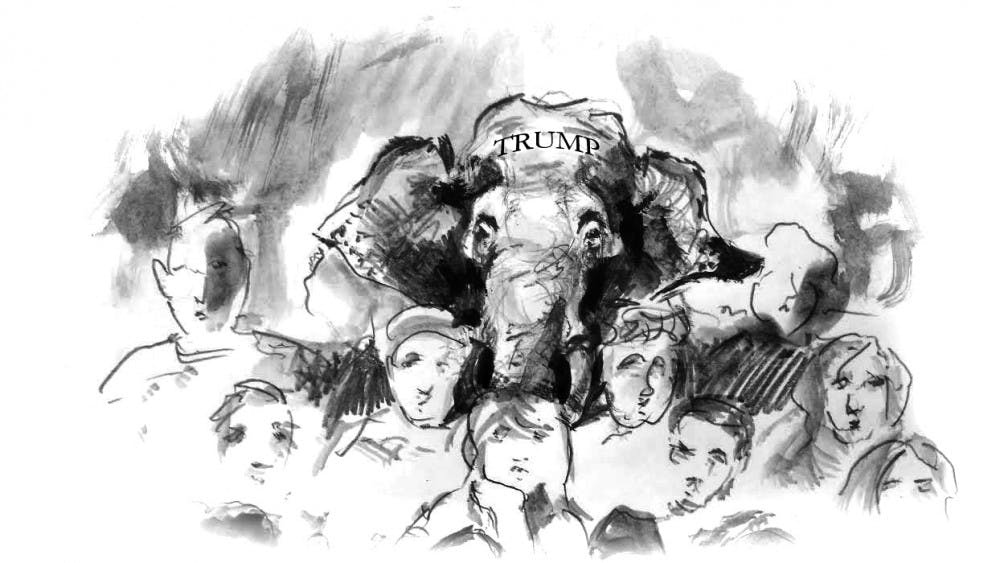As students grapple with the recent actions of President Donald Trump, professors too have found themselves adjusting, redoing courses and syllabuses to acknowledge the political tumult, which some say has created an unusual backdrop for learning and teaching experiences.
Classes in the political science, history and public health departments have all been impacted by the controversial changes that have occurred at the hands of the new Trump administration. James Morone, professor of public policy, political science and urban studies, “reworked” his course PLCY 0022: “City Politics” in the wake of decisions made during Trump’s turbulent first few weeks, specifically his executive order banning immigrants from seven countries.
“I agonized about whether to throw out my notes and simply address the ban on the first day of class,” Morone wrote in an email to The Herald. Ultimately, he decided to teach his class in a way that “underscores Trump’s behavior and how it fits into American politics and history.”
Healthcare stands as another aspect of America’s politics that Trump’s administration is slated to alter drastically. Ira Wilson, professor of health services, policy and practice, who teaches the class, PHP 0310: “Health Care in the United States,” said he has changed the syllabus of his course to use current events to teach students about underlying principles of healthcare.
“Instead of looking at what’s happening as good or bad, right or left, it’s more about using it as an opportunity to understand how insurance, Medicaid or healthcare disparities work,” Wilson said. Wilson aims to make his content “real and human,” teaching students that changes can have a profound impact, leaving those without health care frustrated and scared, he added.
Wilson also updates an “In the News” section on his course web page, which lists current events that directly relate to course content. Associate Professor of History Vazira Zamindar also keeps an “In the News” section for her course, HIST 0150D: “Refugees: A Twentieth-Century History.”
Zamindar’s course began in full only a few days after Trump implemented his immigration ban. She began the class with a clip about the order and its direct impact on refugees. Last year, Zamindar’s course led a group of students to come up with the idea for an “engaged scholar” organization of political activists at Brown, she said. “Continuing (to) engag(e) with current-day refugee issues in Providence is a part of my class,” she added.
This underlying desire to connect course content to current-day material is one that threads throughout many policy-charged classes. Richard Arenberg, visiting lecturer in political science, currently teaches three courses that have been affected by the political climate: PLCY 1701H: “Congressional Leadership, Parties and Public Policy,” POLS 1090: “Polarized Politics” and POLS 1824C: “Political Communication.”
“I’ve had to acknowledge that some of the concepts that I normally emphasize are thrown up in the air by the manner in which Trump has been operating,” Arenberg said, citing the idea of “alternative facts” as a recently created term that has affected his course, POLS 1824C: “Political Communication.” The intense acceleration of the separation of parties has also been a fascinating aspect to examine in his “Polarized Politics” course, he added.
Other courses have been impacted in subtler manners. For example, Assistant Professor of History Jennifer Lambe explained that while her course, HIST 2981N: “Moral Panic and the Politics of Fear,” has yet to explicitly address Trump or his policies, it does serve as a “metatextual conversation” framing these issues.
“The current media tends to cap us in this endless presentness, but as a history course, it feels good to seek context that enriches us,” Lambe said. Her graduate seminar provides a space for analyzing and dealing with events that may have reverberations in other parts of students’ lives, she added.
“Using current events as a tool to understand complexity isn’t always easy, but it is a really great opportunity” for growth, Wilson said.





